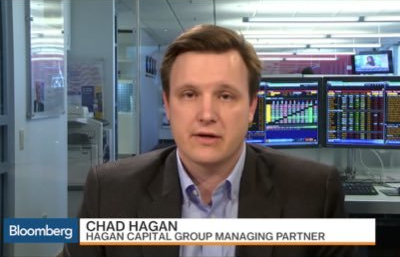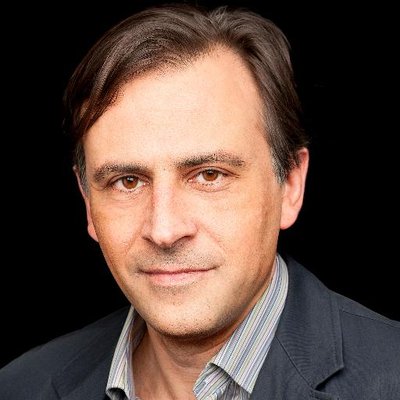The global economy is projected to post weaker growth this year mainly due to less accommodative financial conditions worldwide and as some of the world’s largest economies approach the tail-end of their current economic cycles, pushing down global economic activity and, especially, global demand. Moreover, risks to the global economic outlook continue to be skewed to the downside due to elevated political and trade tensions between China and the United States, fueling economic uncertainty. Meanwhile, the ongoing monetary tightening by central banks in advanced economies could spur further capital outflows from emerging markets, putting their financial markets at risk.
With that said, below you can find the predictions from 13 economic experts for the global economy in 2019. Click on the names in the table below to jump to the answers of specific analysts:
| Marie Mora | Livio Di Matteo | Roger Farmer | Colin Lloyd |
| Francesco Saraceno | Miles Kimball | Chad Hagan | David Zetland |
| Daniel Lacalle | James Picerno | David Flynn | Constantin Gurdgiev |
Like almost everyone I am a consumer of forecasts. I am an informed and educated consumer since I understand how to spot strengths and weaknesses in methodology. With that in mind –
Global growth forecasts are especially difficult. Unlike an individual country, there is wide variability in results. These forecasts should have a wide error band, but this usually does not get much mention.
This year is especially difficult. The factors involved are unique and difficult to measure:
- The possibility of a global trade war
- The shift in China to a consumer-driven economy. The amount and effect of stimulus is not certain, but will be slower than if added to manufacturing. Should we believe the “official” data?
- Brexit – hard, soft, or reconsidered.
- US government shutdown. This has an incremental effect, but it accumulates.
- Iran sanctions, OPEC decisions, and Russian reactions.
Many of these factors ripple into emerging markets. My conclusion is that the error band is wider than ever this year. Despite this, I expect results a bit better than most forecasts. Why? Forecasters seem to be leaning toward worst-case conclusions to most major problems. Solutions are always difficult to see until they arrive.
Jeff Miller is the President of New Arc Investments, Inc. and a former professor of advanced research methods at the University of Wisconsin.
Visit Jeff’s website Dash of Insight and follow him on Twitter here.
It is my view that in 2019, the global economy will undergo a significant slowdown resulting from several overlapping factors. First, the impending “tariff war” (including retaliatory tariffs) is expected to hinder international trade, likely reducing growth in the global economy. Moreover, because higher tariffs may trigger inflation (and expectations thereof), higher interest rates may ensue, which could serve as a further drag on global economic growth. Compounding the issue of higher interest rates is the growing U.S budget deficit. The short-run stimulus effects from the December 2017 deficit-financed tax cuts may already be waning. As such, tax revenue generated through recent increases in employment might not be sustainable, leading to larger budget deficits and potentially higher interest rates, ceteris paribus. While expanding U.S. budget deficits in recent years have not been accompanied by rising interest rates, it is important to note that these budget deficits occurred at a time when the Federal Reserve System was conducting “highly accommodative” monetary policy, which is no longer the case. Moreover, in the past several years the U.S.’s heavy borrowing from abroad (including from China) has probably helped to keep U.S. interest rates low. With a slowing global economy might come a fading in these countries’ appetites to purchase U.S. Treasuries, thus contributing to higher interest rates, further hindering global growth. It is too early to tell if this slowdown in global economic growth will result in a global recession.
Marie Mora, PhD, is a professor of economics at the University of Texas Rio Grande Valley and Director of the NSF-funded AEA Mentoring Program.
The central idea is that we are in the process of a change of cycle that central banks and governments are unlikely to disguise, because both monetary tools and fiscal space have been exhausted. This change of cycle may not lead to a 2008-style recession, but more likely to a Japanese-style stagnation as debt continues to rise while economic and productivity growth weaken. As such, we as investors may believe the mirage of a chain of “bullish” headlines in the first part of 2019: a trade deal between the U.S. and China (likely), a large China stimulus (very likely) and central banks’ relative dovishness (highly likely). This may create short-term bounces, but the euphoria effect may quickly fade because even with a bounce in global liquidity, net financing needs may exceed real growth. If markets react quickly and aggressively to these “false” bullish signals increasing risk and leverage, the probability of falling into a 2008-style crisis increases. Liquidity is falling, and this may reduce this risk of abnormal bullishness.
Read the rest of Daniel’s thoughts on the global economy in 2019 here.
Daniel Lacalle is Chief Economist at Tressis, professor of global economy and author of “Escape from the Central Bank Trap”.
Visit Daniel’s website his website here and follow him on Twitter here.
I expect a moderate deceleration in growth in 2019 for the US and the global economy. In fact, there are already signs that a slowdown is underway. In the US, for instance, fourth-quarter GDP growth is expected to soften for a second straight quarter to below 3%. A softer trend is showing up for late-2018 numbers on global scale as well. For now, the slowdown appears to be moderate and so recession remains low.
Disappointing reports in the incoming data in 2019 could change the outlook, however, and so close monitoring of the numbers in this year’s first quarter is crucial for deciding if the expansion will survive in 2019.
Picerno has been writing about investing and macroeconomics since the early 1990s at Bloomberg, Dow Jones and other media groups before becoming an independent writer/analyst in 2008.
Visit James’ website The Capital Spectator and follow him on Twitter here.
The global economy will continue to grow though there will be deceleration in the overall rate of growth. Some of this is a natural progression into the latter stages of an economic expansion and some is better thought of as a transition in economic model. FocusEconomics’ blog post of the ten largest economies in 2019 and 2020 (11/8/2018) is a great starting point for discussion. At least eight of the top ten face serious structural questions related to their macroeconomic performance in the next two years. At the time of writing this the largest is in a government shutdown and the fifth largest cannot figure out the nature of its departure from a customs and trade union. Combine moderation in growth with the issue of government debt levels and questionable trajectories for fiscal policy and I expect global volatility to remain a concern for the coming year.
David T. Flynn, PhD, is the Department Chair and Professor of Economics and Finance at the University of North Dakota.
Visit David’s website Barter is Evil and follow him on Twitter here.
Economists are often asked to predict where the (global) economy is going, but we’ve a bad track record so I wil merely describe a possible scenario that’s worth considering.
In the past few years, we have seen a shift in the median political-economic situation in countries, from free-market liberalism towards interventionist nationalism. These perspectives have existed for ages, but the loss of faith in markets and anger at policies that favor rich global elites (“the 1 percent”) has led many citizens to support politicians who promise to redistribute wealth on a local (often tribal) basis. This shift can be seen in Brexit, Trump, China and the rise (or unmasking) of nationalist politicians in Turkey, India, Italy, Brazil… the list is long.
Economists have a good understanding of the benefits of trade and the harm that results from its restrictions, so we can be pretty sure that anti-global, pro-national interventions will harm the poor who lose access to cheaper imported goods as they enrich local producers facing less competition at home. Although some workers will benefit from a shift towards autarky, a much larger number of their fellow citizens will be harmed by a loss of opportunities and increase in corruption fed by businesses lobbying for special treatment. These trends will be visible in macroeconomic data, but politicians and the media will pay far more attention to a few visible winners who get new jobs while ignoring the mass of invisible losers who suffer “pain by a thousand cuts.” As an example, consider how Trump’s steel-aluminum tariffs and pro-coal policies have saved a few jobs but kneecapped metal users, undermined renewable energy firms and increased pollution in many vulnerable communities.
My greatest worry is that voters and citizens seem willing to do great economic harm to themselves and others in order to gain political pride. Many of Trump’s supporters and Brexiteers are fine with harming themselves and trade allies (Mexico/Canada and the EU, respectively). In my worst case scenario, I think that China may be close to discarding Hong Kong’s “special status” in favor of national champions and/or a desire to quash political pluralism in the course of consolidating Xi’s Chinese Dream of regional (and soon global) hegemony.
My bottom line is that we are likely to see emboldened populists making previously unthinkable mistakes in 2019 that will impoverish their citizens, aggravate their neighbors and trade partners, and perhaps trigger violence and migration among people who see their chances of future prosperity disappear.
David Zetland is a university lecturer in political-economy at Leiden University College
Visit David’s website The One-Handed Economist.
I am particularly focused on the US and UK for the next few months. There are many variables in the mix right now, and the US and UK have serious political troubles on the horizon. The recent UK vote has spun Brexit on its head, moving towards a more liberal order which will benefit citizens but potentially halt foreign investment. The US tariffs imposed on physical trade and the government shutdown could send the American economy into a deep tailspin.
Chad Hagan is an author; Chairman and CEO of Hagan Capital Group (HCG).
Visit Chad’s website Chaganomics and follow him on Twitter here.
I am most likely to be wrong in my predictions for the global economy in 2019, but here is the picture in my head:
The US employment to population ratio will continue to creep up toward 61%, which given population growth implies robust new job numbers.
The euro-zone economy will continue to look sluggish, but will very gradually improve.
The UK economy will do OK, despite a continuing mess from Brexit. There is an outside, but important chance that a new referendum will cancel Brexit.
The Chinese economy will be the most important news in 2019. In particular, the financial system of the Chinese economy will show a lot of strain, even though the Chinese government will contain any potential financial crisis. Besides defaults and bailouts, the key thing to watch is whether borrowing rates for state-owned and state-favored enterprises and borrowing rates for private enterprises begin to converge. This is a key metric for whether the Chinese economy is moving in a healthy direction.
For world welfare, the most important news will be that Africa and India will continue to have significant growth in per capita income.
Miles Kimball is the Eugene D. Eaton Jr. Professor of Economics at the University of Colorado and also a columnist for Quartz.
Visit Miles’ website Confessions of a Supply-Side Liberal and follow him on Twitter here.
While I cannot give you a precise number, the consensus on a slowing global economy seems about right to me.
The two main risks in my opinion are at a global scale an escalation of the trade wars between the increasingly unpredictable Trump administration and China, and in Europe the Italian government getting tangled in a banking crisis. I believe Brexit, even in its no deal form, to have been in some way already embedded in expectations and behaviors.
This year is a really tough call. Why? Because the level of uncertainty is unusually high.
The main themes are:
1. US Trade disputes
Mostly with China but also Germany. Either things will improve or they’ll get worse (for free trade that is).
2. Brexit
Either a deal will be done (probably a half-baked one) or it won’t (in which case more delays and more uncertainty both for the UK, in particular, and Europe, in general)
3. The unwinding of QE
Not just in the US, but globally, this is a problem central banks are wrestling with. Unwinding their balance sheets is probably the easier part but they are also keen to normalise interest rates before the demographic time-bomb of unfunded state and corporate pensions blows up in their faces. I may find myself berating them but I genuinely feel sorry for central bankers, their mandates always leave them between a rock and a hard place.
What does that mean for markets (stocks, bonds, real estate and currencies) more volatility but also more erratic, disjointed volatility. Financial market returns never tend to be normally distributed but looking ahead I expect more skewness and kurtosis. Things will go from calm to crazy faster than usual in 2019. Good for traders but miserable for investors.
Colin Lloyd is a veteran of financial markets of more than 30 years.Visit his website In the Long Run.
To quote Yogi Berra, prediction is difficult, particularly about the future. But here goes. There are preliminary signs of a slowdown in German automobile production. China is ticking over slowly. Central Banks are reversing QE and the Eurozone is teetering on the brink of political crisis. US – China relations are fragile and new tariffs could be imposed in March.
The big predictor of US recessions is a downturn in housing starts which we have not, as yet, seen.
Scenario 1. Central banks continue to wind down balance sheets, the Fed raises rates at least twice, Britain crashes out of the EU without a deal and France revisits Paris 68. Trump imposes new tariffs and the Chinese execute a Canadian student in retaliation for detaining a Huawei executive. Probability of a global recession: p = 0.99.
Scenario 2. The Fed comes to its senses and maintains a large balance sheet, Brexit is tempered by loose UK fiscal and monetary policy, and the yellow jackets get tired of protesting. China blinks in trade talks and the Canada-China dispute is resolved diplomatically. Probability of a global recession in 2019-2020: p = 0.2.
My mean guess: p = 0.4.
Roger E.A. Farmer is Research Director at NIESR in London and a Professor of Economics at the University of Warwick.
Visit his website Roger Farmer’s Economic Window and follow him on Twitter.
The only certain things about the world economy in 2019 are uncertainty and volatility given the current state of trade relations between the world’s two largest economies at a time when economic growth in both also appears to be slowing down. The United States had a strong 2018 and is likely at the top of its economic cycle. Despite President Trump’s protests directed at the Federal Reserve, interest rates are projected to continue rising and if there is continuing disruption to U.S. and world trade the U.S. economy may enter a mild recession. Compounding this are the potential negative wealth effects on spending by consumers and investors of an increasingly volatile stock market which is reacting to a high degree of political and economic uncertainty. As for China, its rate of growth while still robust by European or North American standards is nevertheless slowing down and this is being exacerbated by the impact of US tariffs as well as a massive amount of Chinese debt that will constrain future prospects for infrastructure spending. Naturally, a resolution of the current trade disputes between the U.S. and China would go a long way in improving the world economic outlook. With respect to Europe, growth there has also been slowing and the ultimate impact of Brexit remains a large source of economic uncertainty. Meanwhile Japan continues to expand but very weakly. And of course, it remains that the recovery from the 2008-09 recession is incomplete given that fiscal stimulus and easy money have in the end generated an even larger global debt pile. Based on all this, the optimistic projection for 2019 is that overall growth will remain positive but slow from rates achieved in 2017 and 2018. The pessimistic projection for 2019 is that continued trade disputes, gradually rising interest rates, debt overhang and economic uncertainty will come together to tip the global economy into recession.
Livio Di Matteo is Professor of Economics at Lakehead University in Canada. Livio contributes to the Worthwhile Canadian Initiative and also manages his own blog, Nothern Economist 2.0.
The second half [of 2018], and especially the last quarter of 2018 offered us a glimpse of what awaits investors in 2019 and 2020. The Goldilocks era was sharply bumped off its pedestal to be replaced by the VUCA (volatile, uncertain, complex and ambiguous) dynamics of the markets consumed by the re-coupling of key risks. These risks are here to stay.
[…]
In simple terms, 2019 is likely to be a year of structural breaks and VUCA re-coupling. Advanced economies’ weakening real growth conditions are likely to run parallel to the financial markets characterized by rising liquidity risks, increased volatility and uncertainty. Growing complexity of financial strategies deployed to counter these risks will become tightly coupled with the ambiguity of the overall macroeconomic and monetary policies, as the U.S. and the rest of the world diverge on fiscal deficits and monetary tightening. Pursuit of growth by policymakers and chasing of higher returns by investors can easily give way to deleveraging and wealth preservation objectives. Such a shift, while overdue, is likely to be a painful one for all involved.
Get the rest of Constantin’s in-depth analysis on the matter in his piece: Gurdgiev: Thoughts on the global economy in 2019
Dr. Constantin Gurdgiev is Professor of Finance at Middlebury Institute of International Studies at Monterey and continues as adjunct assistant professor of finance at Trinity College, Dublin.
Visit Constantin’s website True Economics and follow him on Twitter here.












